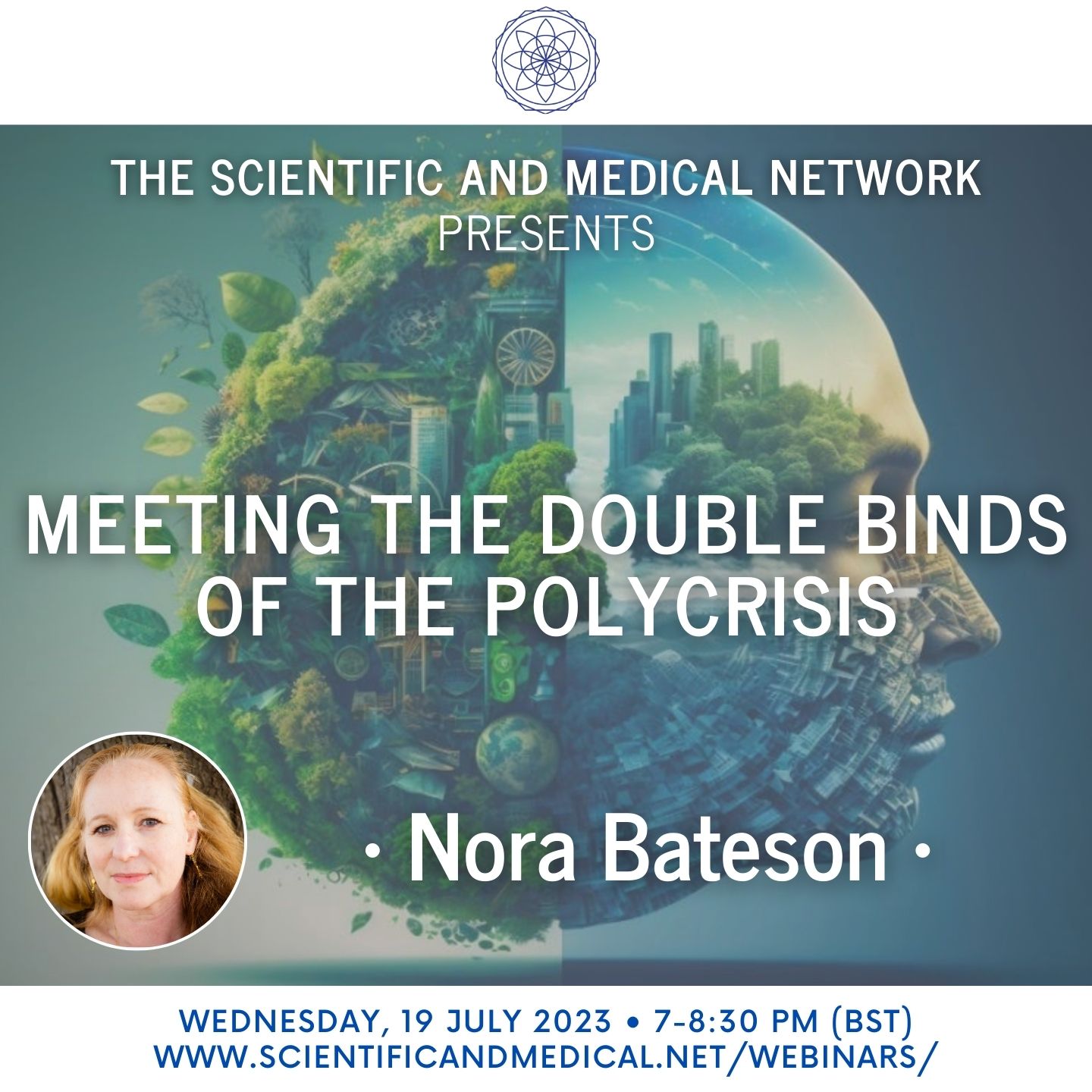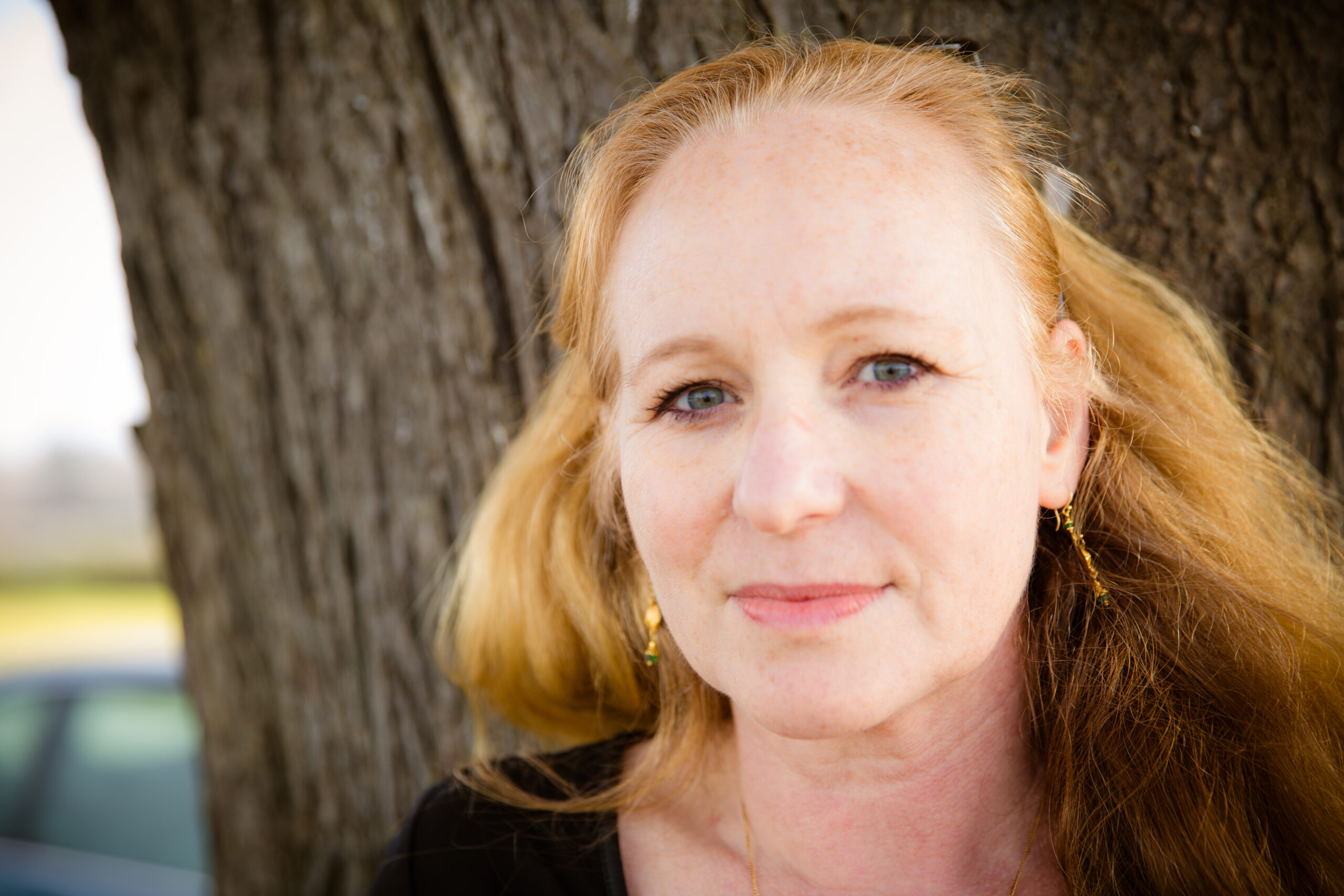
Nora Bateson – Meeting the Double Binds of the Polycrisis
How do you meet a double bind?
The major problems in the world are the result of the difference between how nature works, and how people think.
– Gregory Bateson
To meet this era and address the ecological problems is to recognise that they are wrapped deeply into many contexts of daily life, economy, technology, education, health, politics, family, culture, history.
There is an ecological pattern through which the many overlapping crises of the era are producing binds that make solutions difficult. Like the organisms in an ecology, the interdependency of multiple, transcontextual institutions – and the presuppositions within the culture that they are forged in – means that there is a need for another sort of approach. While this approach is not immediately recognisable as “effective”, it is important to remember that our ideas are woven into the industrial thinking that has created the polycrisis to begin with.
To meet these binds is to make a shift to ecological perception in which the issues are inseparable. This approach is not amenable to the usual spreadsheets, measurements and strategies. In the face of urgency, change-making and solution-finding has bumped up against the core structures of society that compartmentalise the issues. The urgency to meet the polycrises, in an ecological way, is in contradiction to the workings of the social and economic rules the institutions are locked within. How do you meet a double bind?
•
About the speaker:

Nora Bateson is an award-winning filmmaker, research designer, writer and educator, as well as President of the International Bateson Institute based in Sweden. Her work asks the question “How we can improve our perception of the complexity we live within, so we may improve our interaction with the world?.” An international lecturer, researcher and writer, Nora wrote, directed and produced the award-winning documentary, An Ecology of Mind, a portrait of her father, Gregory Bateson. Her work brings the fields of biology, cognition, art, anthropology, psychology, and information technology together into a study of the patterns in ecology of living systems. Her book, Small Arcs of Larger Circles released by Triarchy Press, UK, 2016 is a revolutionary personal approach to the study of systems and complexity, and the core text of the Harvard University LILA program 2017-18. Her new book, Combining, will be released in November 2023 by Triarchy Press. Nora was the recipient of the 2019 Neil Postman Award for Career Achievement in Public Intellectual Activity. Find out more: https://batesoninstitute.org/
TICKETS
Please note: This event is included in the Season Ticket.
All bookings will receive a link to view the RECORDING.
Speaker
-
 Nora BatesonFilmmaker, writer, President of the International Bateson Institute
Nora BatesonFilmmaker, writer, President of the International Bateson InstituteNora Bateson is an award-winning filmmaker, research designer, writer, educator, international lecturer, as well as President of the International Bateson Institute based in Sweden. She is the creator of the Warm Data theory and practices. Nora’s work brings the fields of biology, cognition, art, anthropology, psychology, and information technology together into a study of the patterns in ecology of living systems.
She wrote, directed and produced the award-winning documentary, An Ecology of Mind, a portrait of her father Gregory Bateson. Her first book, Small Arcs of Larger Circles, released by Triarchy Press, UK, 2016 is a revolutionary personal approach to the study of systems and complexity. She was the recipient of the Neil Postman Award for Career Achievement in Public Intellectual Activity in 2019.
In her latest book Combining, Nora invites us into an ecology of communication where nothing stands alone, and every action sets off a chain of incalculable consequences. She challenges conventional fixes for our problems, highlighting the need to tackle issues at multiple levels, understand interdependence, and embrace ambiguity.
